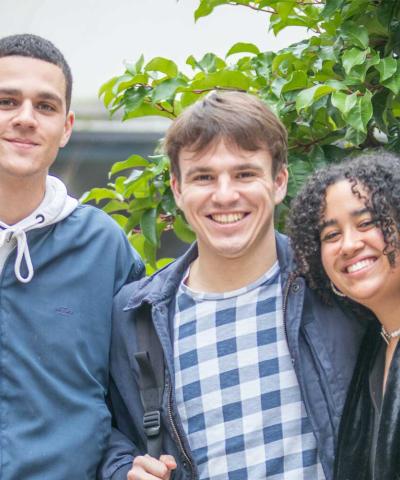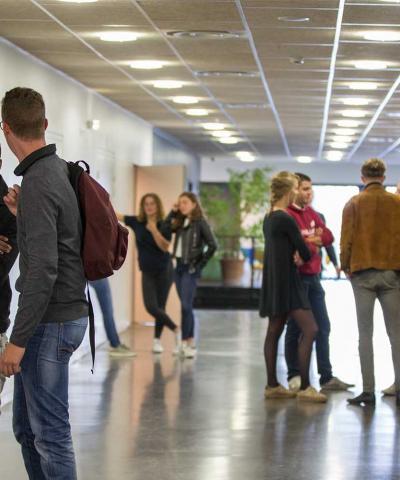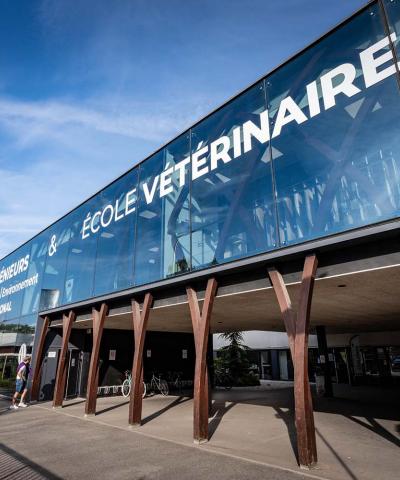Extracting and valorizing all the components of a bioresource, as well as agricultural, agri-food or industrial by-products, to build an environmentally virtuous industry.
The challenges of biosourcing and biotechnologies
To build the world of tomorrow, knowledge of raw materials, and more specifically bioresources, their transformation and the products they will produce, is essential.
The Biosourcing, Biotechnologies and the Environment pathway is based on two pillars:
- Green, white, blue and yellow biotechnologies
- Environmental biotechnologies
This course offers :
- understanding bioresources through their sources and quality
- master their transformation by biotechnological means, a method suited to short-distance production and perfectly in tune with the idea of eco-design
- focus on products, bioproducts, innovative products or new products in the field of materials, energy, biomolecules or ingredients, intended for industries such as cosmetics or food.
Course details
Semester 7 - Biotechnologies and bioresource diversity
Biotechnology and Bioresource Diversity Major
- Common core
- Raw materials deposit
- Quality of raw materials
- Project: Raw materials caracterisation and quality
- Promoting community involvement
Minors
Each semester includes 2 blocks dedicated to minors, corresponding to 54 hours of complementary teaching, enabling students to complete their training in a related field.
Several minors are offered on the Rennes and Beauvais campuses, some of which require on-site travel (others can be taken by distance learning).
Some examples of minors
Block 1: Packaging / Biotechnologies (bioprocesses and environmental microbiology) / Global Environmental Issues / Supply chain management / Sustainable weed management / Automated data processing : Python programming and Numerical methods, Python and advanced methods / Scientific approach - Research - Beginner
Block 2: Hygiene and food quality (in the food industry and catering) / Polymer life cycle / Bio-inputs / Alternative and connected products / Sustainable weed management / Sustainable weed management.
Bio-inputs / Alternative and connected agricultures / Focus on CSR / Scientific approach - Research - Beginner
Semester 8 - Biotech, Food, Non-Food processing
Major Biotech, Food, Non-Food processing
- Common core
- Food processing
- Non-food processing
- Project: Data in agroindustrial processing
- Engineering Assistant Internship
- Promoting community involvement
Minors
Each semester includes 2 blocks dedicated to minors, corresponding to 54 hours of complementary teaching, enabling students to complete their training in a related field.
Several minors are offered on the Rennes and Beauvais campuses, some of which require on-site travel (others can be taken by distance learning).
Some examples of minors
Block 1: Food R&D: from concept to valorization / Predictive microbiology and product shelf life / Scientific approach - Research - Intermediate / Animal nutrition and formulation / Entrepreneurship
Block 2: Conservation and/or organic farming / Scientific approach - Research - Intermediate / Mastering fermentation: Bioprocesses & Benefits / Innovative packaging / Circular carbon economy: energy mix, PCAET and local wood industries / Immersive entrepreneurship and design thinking
Semester 9 - "A la carte" major
In semester 9, you can choose the path you want to follow, from :
- the main major of the Biosourcing, biotechnologies and environment pathway, which takes a more in-depth look at this field: Smart Ag-Tech & Biotechnology
- one or more opening majors, designed to broaden your skills in another field:
- Agri-food Marketing and Innovation (Rouen campus)
- QHSE, RSE, Risk manager (Beauvais campus)
- Ag and Food Data management (Rouen campus)
- Intrapreneurship, entrepreneurship and innovation (Beauvais campus)
- a semester, a double degree or a degree-granting stay in France or abroad (from 12 to 18 months for a double degree or a degree-granting stay)
Semester 10 - End-of-studies internship
The final project is based on an in-company work placement or research placement for students, or on the long period spent in a company for apprentices.
A final dissertation is written and presented orally.
Biosourcing, biotechnologies and the environment?
The Biosourcing, Biotechnologies and Environment pathway enables you to work in biotechnologies, biobased products, biomaterials and eco-innovation, bioeconomy, biomolecules, transformation and bioprocesses, and eco-design.
some professions
- agro-resources engineer,
- raw materials purchasing manager,
- QHSE manager,
- production manager,
- formulation manager,
- R&D engineer,
- innovation manager
- LCA (life cycle assessment) manager



